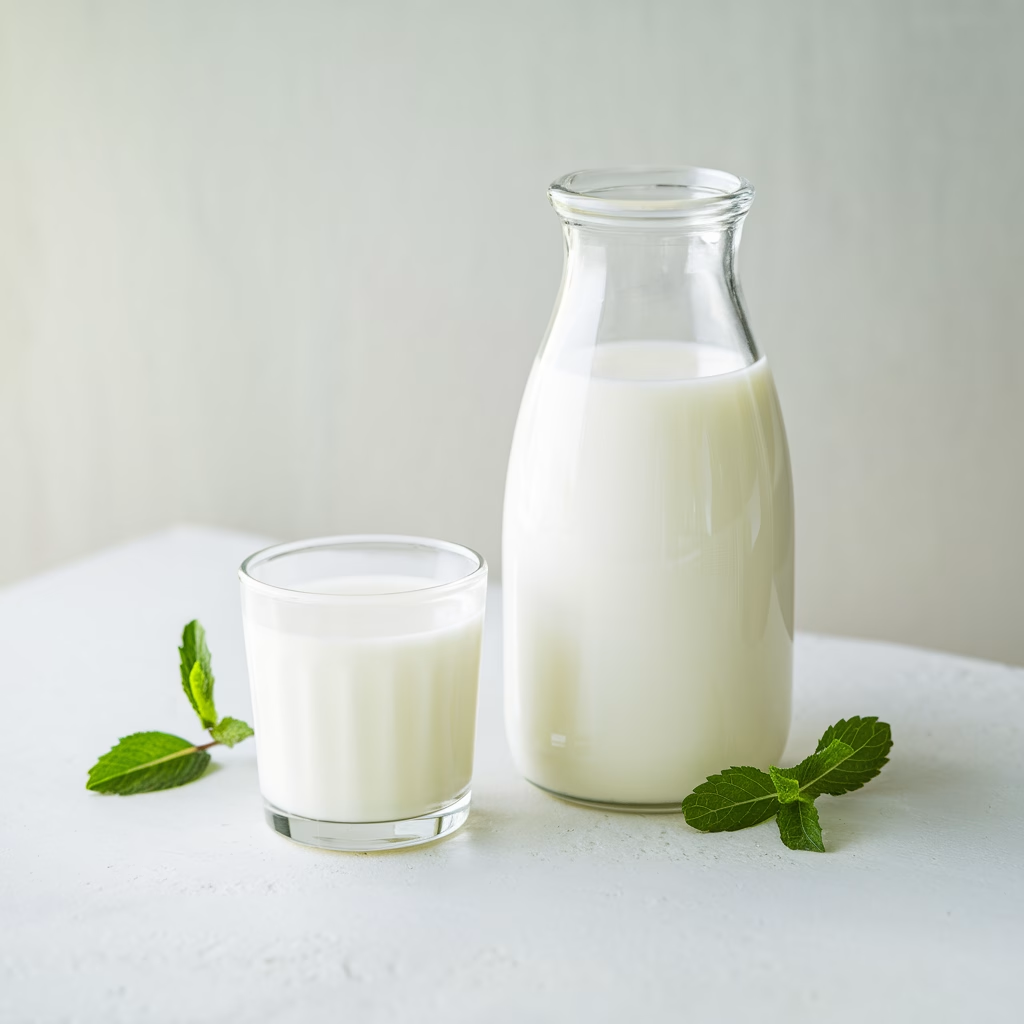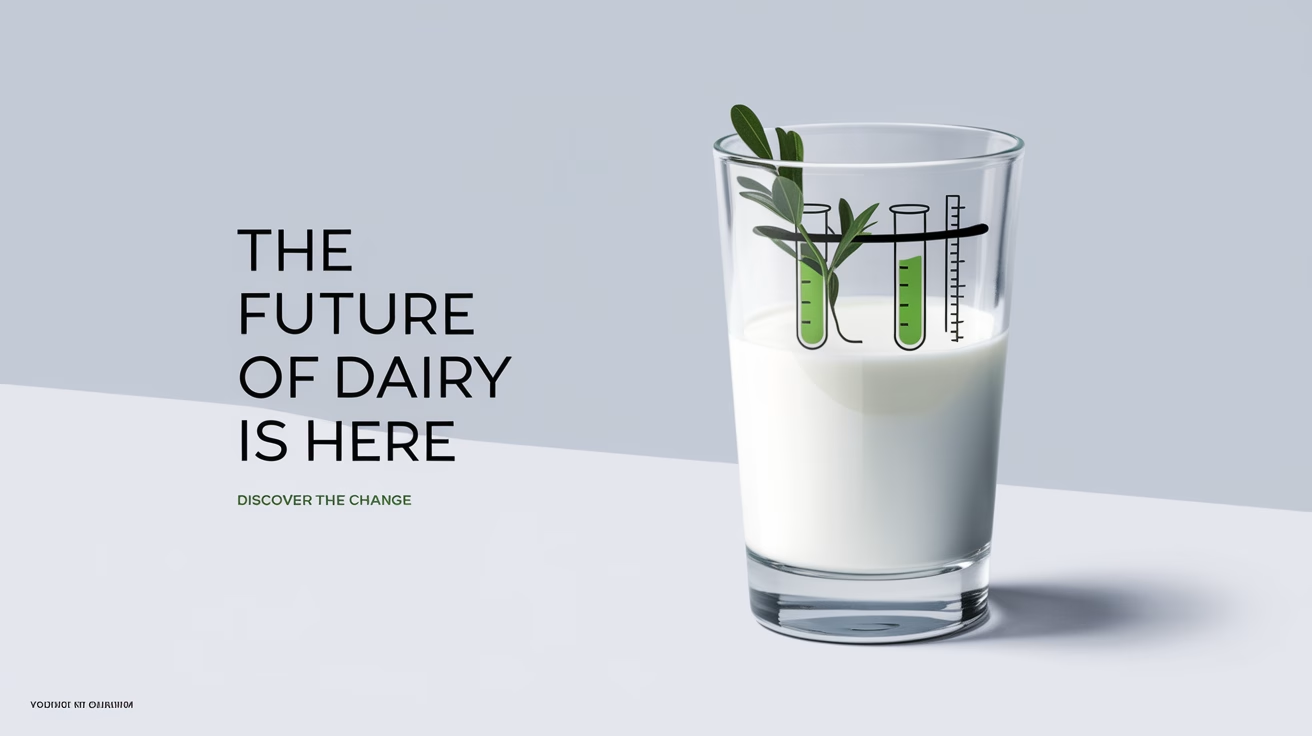Lab-made milk is reshaping the dairy industry with its innovative approach to sustainability. Led by Brown Foods, “UnReal Milk” is the first lab-made whole cow milk created using mammalian cell culture, offering a cruelty-free alternative. Identical in composition to traditional cow milk, it reduces carbon emissions by 82%, water usage by 90%, and land use by 95%. This breakthrough aligns with global sustainability goals while maintaining the taste and functionality of conventional dairy.
The Science Behind Lab-Made Milk
Lab-made milk is produced through two main methods: mammalian cell culture and precision fermentation. Brown Foods uses mammalian cell culture to replicate the complete composition of cow milk, including proteins, fats, and carbohydrates. Precision fermentation, on the other hand, focuses on producing key milk proteins like casein and whey by genetically modifying microorganisms. These proteins are then combined with plant-based fats, sugars, and water to create the final product. Both methods aim to deliver a nature-identical dairy experience without the environmental toll of traditional farming.

Brown Foods’ UnReal Milk stands out for its ability to replicate traditional milk in both taste and texture. This achievement has been validated by the Whitehead Institute, confirming it contains all essential dairy proteins. As Sohail Gupta, Co-founder and CEO of Brown Foods, explains, their goal is to solve food production challenges while delivering functional and delicious products. This approach not only redefines dairy but also opens doors for sustainable innovations in other food categories.
Environmental and Health Advantages of Lab-Made Milk
Lab-made milk offers significant environmental benefits, addressing critical issues like greenhouse gas emissions, water consumption, and land use. UnReal Milk, for instance, reduces carbon emissions by 82%, water usage by 90%, and land use by 95% compared to conventional dairy. These reductions align with global efforts to combat climate change and promote sustainability. Additionally, lab-made milk is lactose-free, making it accessible to individuals with lactose intolerance.
The lactose-free nature of UnReal Milk is achieved through the use of plant sugars fermented by yeast. This innovation not only broadens dietary accessibility but also ensures that the product remains cruelty-free. By leveraging technology, Brown Foods is creating a product that’s both environmentally and health-conscious. This aligns with the growing trend of plant-based alternatives that cater to diverse dietary needs.
Market Potential and Future of Lab-Made Milk
Brown Foods is poised to make a significant impact on the dairy industry with its plans to introduce UnReal Milk version 2.0 for consumer tasting in late 2025. A market pilot is set to follow in late 2026, with the company optimizing bioprocessing using AI to accelerate production. Backed by $2.3 million in funding from investors like Y Combinator, AgFunder, and Collaborative Fund, Brown Foods aims to scale its sustainable production methods.
Dr. Richard Braatz, Edwin R. Gilliland Professor of Chemical Engineering at MIT, praises Brown Foods for achieving a scientific and technological breakthrough. The investment and innovation behind UnReal Milk highlight its potential to disrupt the dairy industry. As the company continues to refine its processes, it’s paving the way for a future where sustainable dairy is the norm. This aligns with the broader movement toward fermented and lab-based food innovations that prioritize health and sustainability.
The Future of Dairy: How Lab-Made Milk is Changing the Industry
Lab-made milk is more than just an alternative; it’s a game-changer for the dairy industry. With its ability to replicate traditional milk while drastically reducing environmental impact, UnReal Milk by Brown Foods sets a new standard for sustainable food production. Its lactose-free feature further enhances its appeal, making it accessible to a wider audience. As this innovation continues to evolve, it’s clear that lab-made milk will play a key role in shaping the future of dairy.

